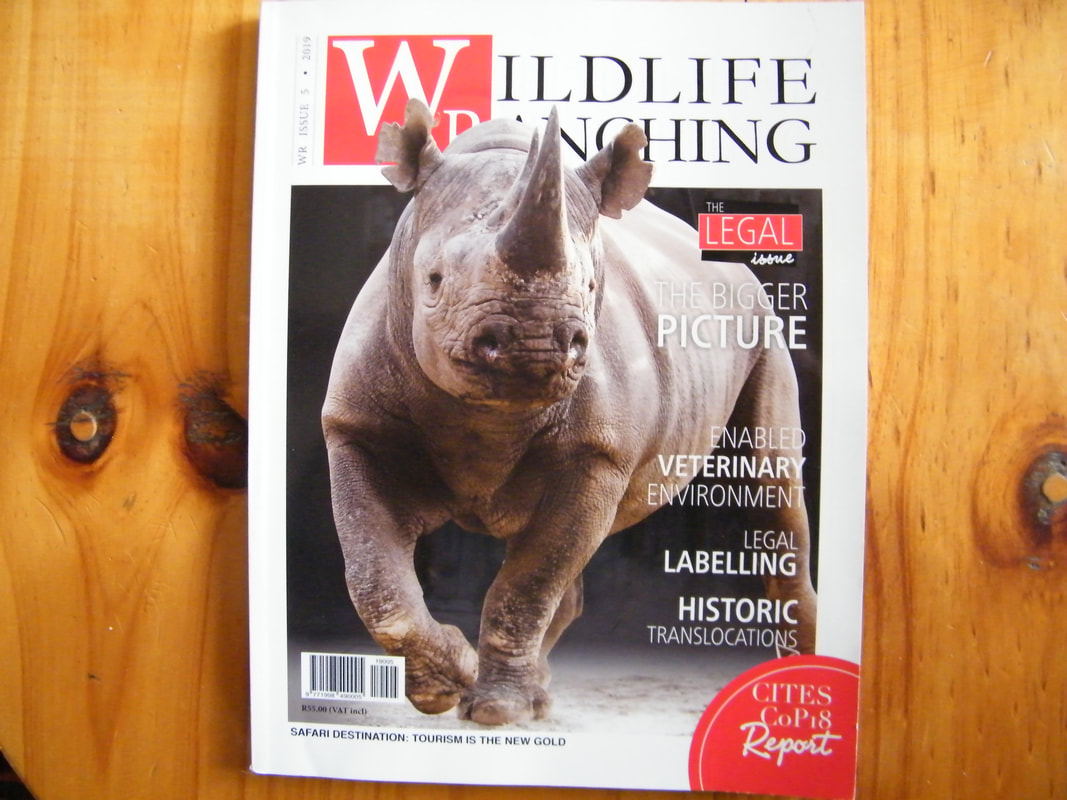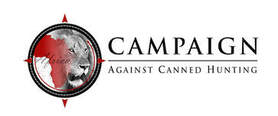
Define wildlife accurately: animals living wild in their natural functioning ecosystem.
Instead it is South African government policy to take the ‘wild’ out of wildlife and turn the animals into alternative livestock to be farmed. The fate of wildlife is to become domesticated. And to what purpose? To be hunted of course. To make more money for wildlife/alternative livestock ranchers.
But hunting is innately cruel. The wildlife ranching/exploitation industry dances around this issue. Here is a statement from the latest Wildlife Ranching magazine by one Sas-Rolfes:
“the ability of certain animals to experience pain and suffering evokes strong emotions and underpins the rising support for( zoo centrism)”
Wow! So only certain animals feel pain.....
In plain English here is an entire industry built upon routine cruelty to animals; upon the adoption of a policy of inflicting death and suffering on helpless animals for fun. For fun and blood money for the ranchers/exploiters who pander to the hunters/sadists.
And the justification given for such an obviously barbaric policy is “to save the animals from extinction”. Well, which is it, wildlife/alternative livestock ranchers/exploiters? Are you investing all those millions in using land to provide entertainment for sadists or are you doing it to save the species from extinction?
If you answer ‘both’ then that begs the question: why bother? If the only purpose in breeding captive wild is to shoot bullets into them then what is the point?
These are fundamental questions that the South African government does not address or even understand.
Here is an example which serves as a metaphor for South African government policy:
Most readers will be aware of Lord Ashcroft’s book Unfair Game which exposes the cruelty underlying the canned lion hunting industry in South Africa. When his colleagues attempted to bring his research to the attention of the senior policeman in the capital city on the issue of wildlife protection, here is the response they received.
In Lord Ashcroft’s own words:
“One of the most shocking aspects of the recent investigation into lion farming that I launched was that when it ended, my team took their findings to a senior police officer in Pretoria who specialises in wildlife issues. Not only did he not read the evidence file they gave him, but having rejected it he also threatened to put them in prison.”
There you have it - conservation South African style. In my experience as an advocate for compassion towards animals over two decades, animal welfarists are routinely labelled ‘radical’, ‘extremist’, ‘troublemakers’ and yes - even ‘terrorists’.
I flick through this 120 page glossy magazine jam-packed with lovely photos of wildlife and stuffed with articles all trumpeting (sorry) the success of wildlife ranching and proclaiming what wonderful conservationists they all are. I’m left wondering if anyone in South African conservation thinks further than his bank account.
Even the South African veterinary Council is complicit. I know many wonderful vets who are passionate about animal welfare. But the SA Veterinary Council appears to me to be more passionate about the commercial interests of the veterinary industry. I quote from page 97 of the magazine:
“it is critical for the veterinary profession if it wants to ensure its future ..to be seen to be relevant to this country today, not to some conceptual (read ‘colonial’) country in accordance with idealistic but impractical ill-fitting and irrelevant rules and standards.”
Translate: get into bed with the animal abusers and steer clear of the animal rights movement!
So according to this eminent vet, the real colonials are the animal welfarists, not the trophy hunters. What was President Jomo Kenyatta of Kenya thinking when he described trophy hunting as ‘a barbaric relic of colonialism?’
The last chapter is titled Tourism is the New Gold. And here is President Cyril Ramaphosa giving an address at Africa Travel Indaba. Here he extols the benefit to South Africa of a growing tourism industry. He himself is a breeder of trophy animals - expensive buffalo in particular. I read that he paid something like 40 million rands for a buffalo bull at a ‘game sale’ some years back. Why so much for one animal? Because of its large horn span. Trophy hunters pay by the inch for buffalo horn trophies. How bizarre is that?
So this makes me shake my head in disbelief. Here is a president claiming to be desperate to grow tourism for job creation and poverty alleviation. But only recently the Portfolio committee of Parliament called upon government to phase out lion farming and canned hunting because these activities were sabotaging the valuable tourism industry. Our own submission to Parliament listing the bad press South Africa was getting from treating lions so badly – all 62 pages of it – can be viewed here: https://www.dropbox.com/s/ry49b4b0blmjdgt/CACH%20Brand%20SA%20Review%20August%202018.pdf?dl=0
So which is it? Are lion farmers and hunting operators ‘economic saboteurs’ driving ethical tourists to boycott SA, or are they tourist attractions being encouraged by government to expand their operations?
Conservation was always thought to be the protection of whole natural functioning ecosystems for their own sakes. Now it is synonymous with money. Whoever makes the most money from exploiting wildlife is the most worthy conservationist in South Africa.
But if money has become the sole criterion of conservation then a Schindler’s list situation has been created. If we wish to save Africa’s vanishing wildlife we shall have to outspend the hunters in buying the lives of the animals. Good luck with that!
